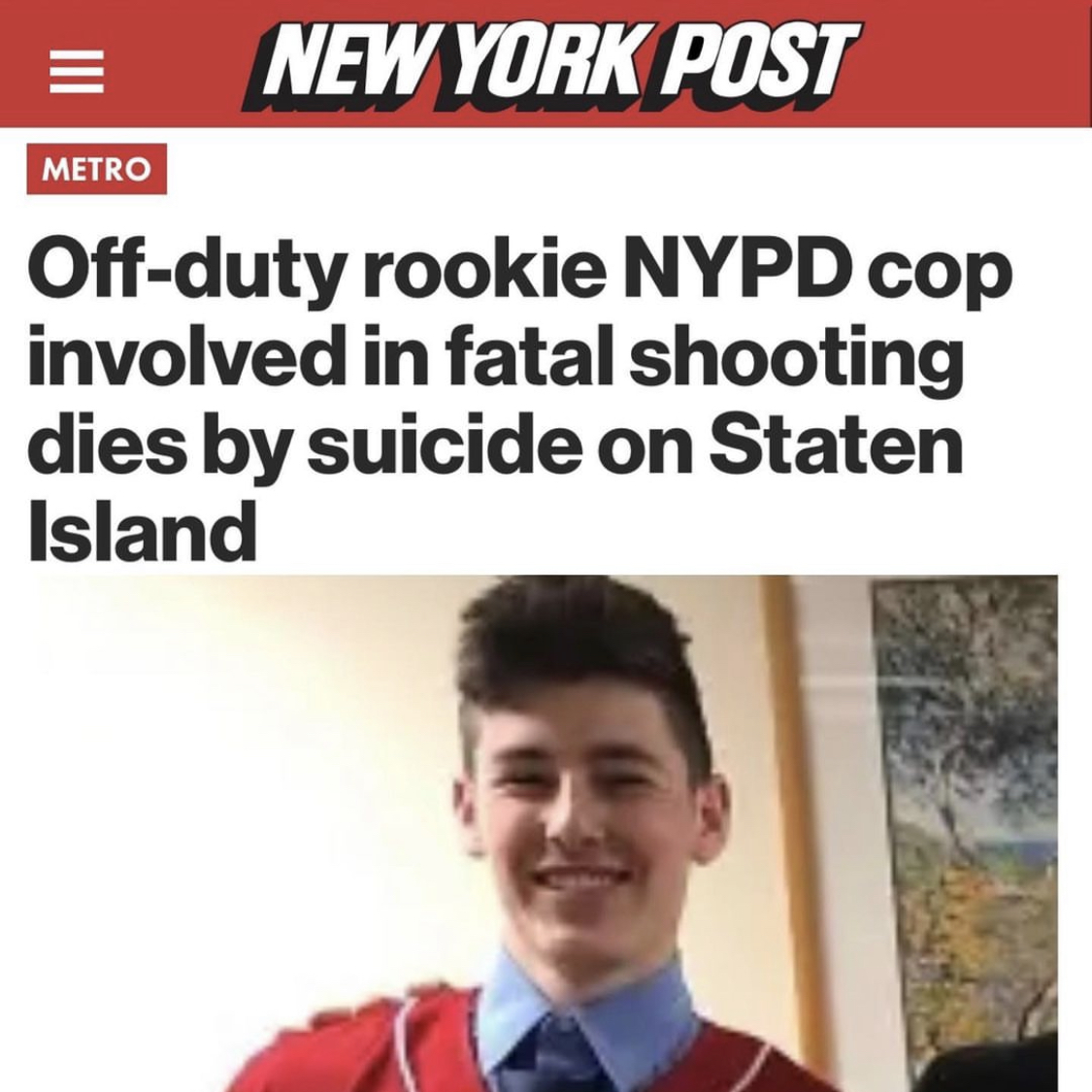This story is one, in a long line of examples, which helps us understand how stress & trauma impact our nervous systems over time, & can lead to the risk of self harm thoughts & behaviors.
I shared last wk, that I’d began working w Nellis AFB & that they’d had 8 suicides last yr. Why’s it that military & first responders have such a high rate of suicide?
In this particular case, the young man in the pic who died by suicide is Colin Rossiter, 22. He was found in his room in his house just after 1am a few days ago, by his father, a retired NYPD Sergeant, after hearing a gun shot. Colin at 22 looks like a child. How does this happen?
Colin’s fam member is one of the women we worked closely w for corporate programming a few months ago. I decided to dive in to learn more.
This past Nov, a man named Jermaine Hicks was standing in a crosswalk w a gun in his hand & appearing (on video) to be talking to a woman on the sidewalk abt 15 feet away, in Brooklyn.
NYPD Chief of Patrol Jeffrey Maddrey told reporters that police responded to that intersection after receiving reports that (Hicks) was firing off rounds there. The woman Hicks was talking to had called the cops asking them to come to the scene. She felt she was in danger.
As cops arrived (Rossiter was one of them), Hicks opened fire on them – what’s been estimated to be at least 4 rounds, before the cops shot back. Still, as he laid on the ground – Hicks continued to shoot at the cops, until one more shot came back at him & Hicks was killed.
Being a first responder is not easy. The video is available for anyone to see: Hicks opened fire, unprovoked. The cops were acting in self defense. But that loss of life must’ve weighed these past few months on Rossiter. THE factor to his suicide? We don’t know. But a factor. This is already the 3rd NYPD suicide in 2023.
Why do military & first responders have high suicide rates? What they see/experience/partake in on the job, vicariously, ON TOP of their own personal “stuff.”
We accept plaque builds in our arteries. Can we accept stress & trauma build in our nervous systems whether we “see” it or not?


